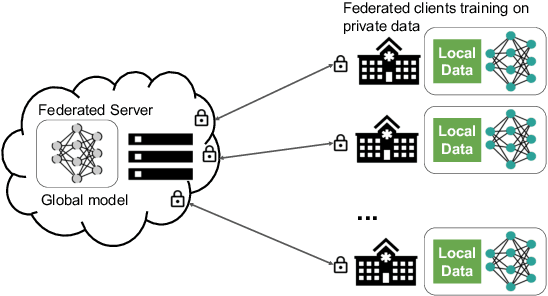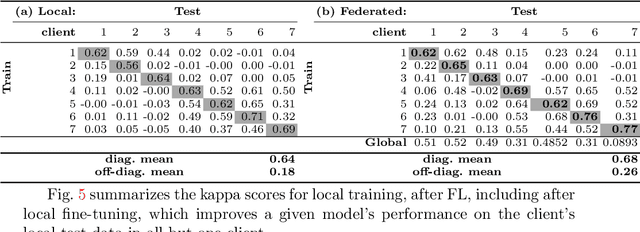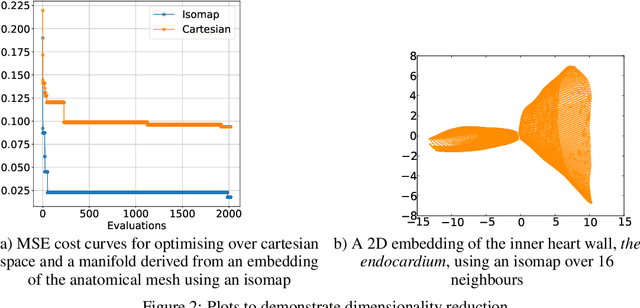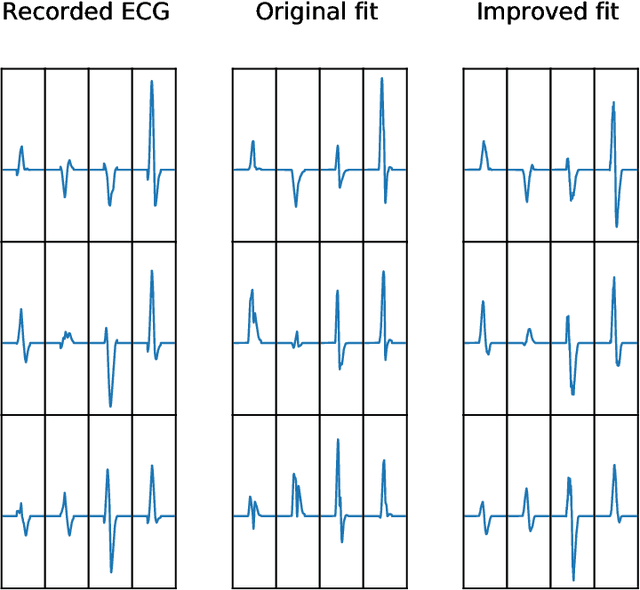Adam McCarthy
Federated Learning for Breast Density Classification: A Real-World Implementation
Sep 17, 2020



Abstract:Building robust deep learning-based models requires large quantities of diverse training data. In this study, we investigate the use of federated learning (FL) to build medical imaging classification models in a real-world collaborative setting. Seven clinical institutions from across the world joined this FL effort to train a model for breast density classification based on Breast Imaging, Reporting & Data System (BI-RADS). We show that despite substantial differences among the datasets from all sites (mammography system, class distribution, and data set size) and without centralizing data, we can successfully train AI models in federation. The results show that models trained using FL perform 6.3% on average better than their counterparts trained on an institute's local data alone. Furthermore, we show a 45.8% relative improvement in the models' generalizability when evaluated on the other participating sites' testing data.
Variational Inference over Non-differentiable Cardiac Simulators using Bayesian Optimization
Dec 09, 2017


Abstract:Performing inference over simulators is generally intractable as their runtime means we cannot compute a marginal likelihood. We develop a likelihood-free inference method to infer parameters for a cardiac simulator, which replicates electrical flow through the heart to the body surface. We improve the fit of a state-of-the-art simulator to an electrocardiogram (ECG) recorded from a real patient.
Predicting Patient State-of-Health using Sliding Window and Recurrent Classifiers
Dec 02, 2016
Abstract:Bedside monitors in Intensive Care Units (ICUs) frequently sound incorrectly, slowing response times and desensitising nurses to alarms (Chambrin, 2001), causing true alarms to be missed (Hug et al., 2011). We compare sliding window predictors with recurrent predictors to classify patient state-of-health from ICU multivariate time series; we report slightly improved performance for the RNN for three out of four targets.
 Add to Chrome
Add to Chrome Add to Firefox
Add to Firefox Add to Edge
Add to Edge